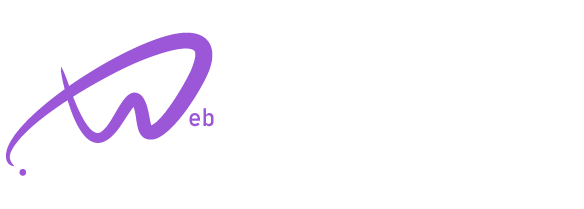
In today’s digital landscape, having a website is no longer a luxury—it’s a necessity. Whether you’re a business owner, freelancer, or an individual passionate about a cause, a website allows you to establish a strong online presence and connect with your target audience. But with so many website creation options available, a crucial question arises: should you opt for a free website or invest in a paid one?
The truth is, there’s no one-size-fits-all answer. Both free and paid websites have their merits and drawbacks, and the best choice ultimately depends on your specific needs and goals. Let’s delve deeper into the pros and cons of each option to help you make an informed decision.
“At Web Developify, we believe in creating solutions that are not only effective but also resonate with our clients’ unique visions and needs. Here’s what some of our clients have to say”
Free Websites A Budget-Friendly Start, But With Limitations
Free website builders like Wix, WordPress, and Blogger offer a tempting proposition: creating a website without any upfront costs. This can be a great solution for personal projects, hobbies, or those on a tight budget. These platforms often boast user-friendly interfaces with drag-and-drop functionality, making website creation accessible even for beginners with no coding experience.
- Budget-friendly free websites for personal use.
- Limited design and ads on free websites.
- Custom domains and full control with paid websites.
- Advanced features with paid websites.
- Enhanced security and performance with paid websites.
- Free for simple needs; paid for professional and scalable presence.

However, the allure of free comes with a set of limitations:
- Restricted Design and Customization: Free website builders typically limit customization options. You might be confined to pre-designed templates with limited control over the website’s look and feel. This can make it challenging to create a website that truly reflects your unique brand identity.
- Unwanted Ads and Branding: Free websites often display advertisements on your site, which can detract from your professional image and user experience. Additionally, your website address might include the provider’s name (e.g., [invalid URL removed]), making it less memorable and brand-specific.
- Security and Reliability Concerns: Free websites may have lower security standards and experience downtime or performance issues more frequently. This can be risky for anyone handling sensitive information or needing a website with consistent uptime.
- Limited Scalability: If your website experiences significant growth in traffic or complexity, a free plan might not be able to handle the increased demands. Upgrading to a paid plan later could require additional costs and effort to migrate your website.
Paid Websites Greater Control, Features, and Growth Potential
Paid website hosting offers a more professional and robust solution for your online presence. Here’s how paid websites stack up against their free counterparts:
- Professionalism and Branding Control: With paid website hosting, you can register a custom domain name (e.g., yourbusiness.com). This creates a more professional and memorable online identity for your brand. You also have complete control over the website’s design and functionality, allowing you to tailor it to your specific needs and branding.
- Wider Range of Features and Flexibility: Paid website plans offer a vast array of features beyond basic website creation. You can add functionalities like e-commerce stores, appointment booking forms, analytics tools, SEO plugins, and more, depending on your website’s purpose.
- Enhanced Security and Reliability: Paid web hosting providers typically offer superior security measures to protect your website from malware, hacking attempts, and data breaches. Additionally, you benefit from more reliable uptime and faster performance, ensuring a more positive user experience for your visitors.
- Scalability for Growth: Paid plans are built for scalability. As your website grows in traffic and complexity, you can easily upgrade your resources without needing to migrate to a new platform entirely. This allows your website to adapt and evolve alongside your business.
- Dedicated Customer Support: Most paid web hosting providers offer customer support to assist you with technical issues and answer your questions. This can be invaluable, especially if you’re not tech-savvy.
Choosing the Right Path Free vs. Paid
So, how do you decide between a free and a paid website? Here’s a quick guide:
Opt for a Free Website Builder If:
- You have a personal website, portfolio, or simple blog with limited needs.
- You’re on a tight budget and don’t mind some limitations.
- You’re comfortable with basic customization options.
Invest in a Paid Website If:
- You’re a business, organization, or freelancer seeking a professional online presence.
- You require advanced features and functionalities for your website.
- Security, reliability, and scalability are crucial for your needs.
- You value having dedicated customer support for technical issues.
Conclusion
When deciding between a free and a paid website, consider your goals, budget, and long-term plans. Free websites offer a cost-effective way to establish a basic online presence, but they come with significant limitations. On the other hand, investing in a paid website unlocks greater control, enhanced features, and the ability to scale as your needs grow.
By carefully weighing the pros and cons of each option, you can make a decision that best aligns with your objectives and sets you up for online success with Web Developify.



